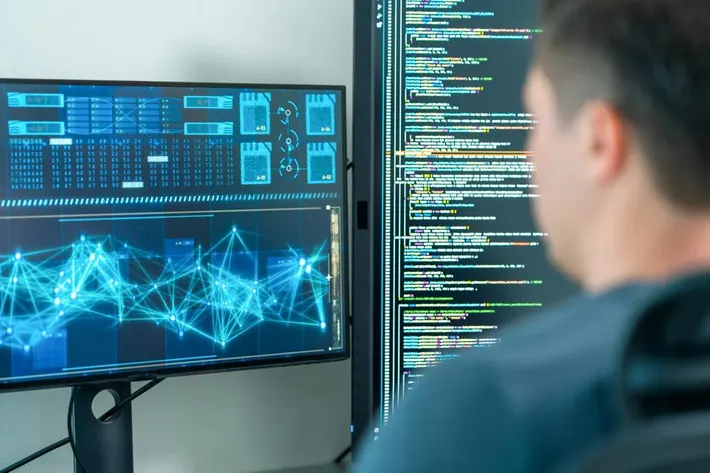How AI is Transforming Software Development in 2024

Artificial Intelligence has become a transformative force in the tech industry, revolutionizing how we approach software development. As we progress through 2024, AI tools and capabilities are reshaping every aspect of the development lifecycle.
From code generation to testing and optimization, AI is empowering developers to work more efficiently while raising important questions about the future of software development. Let's explore how AI is changing the landscape of software development.
AI-Assisted Coding: A New Era of Development
The integration of AI into coding tools has dramatically transformed how developers write and maintain code. Tools like GitHub Copilot are leading this revolution, offering unprecedented assistance in code generation and problem-solving.
The Impact of AI Coding Assistants
Modern AI coding tools provide numerous benefits:
- Real-time code suggestions
- Automated documentation generation
- Smart code completion
- Pattern recognition in complex codebases
Boilerplate Code Generation
AI has revolutionized repetitive coding tasks:
- Automated component creation
- Template generation
- API integration scaffolding
- Configuration file generation
AI in Testing and Debugging
Artificial Intelligence has brought significant improvements to software testing and debugging processes, making them more efficient and reliable.
Advanced Testing Capabilities
AI-powered testing tools offer:
- Automated test case generation
- Intelligent test prioritization
- Visual regression testing
- Performance testing optimization
Enhanced Debugging
Modern AI debugging tools provide:
- Predictive bug detection
- Root cause analysis
- Automated fix suggestions
- Pattern-based error prevention
Code Optimization and Performance
AI is transforming how we approach code optimization and performance enhancement, offering unprecedented insights and automation.
AI-Driven Refactoring
Key optimization capabilities include:
- Automated code refactoring
- Performance bottleneck detection
- Resource usage optimization
- Architecture improvement suggestions
Predictive Analytics
AI analytics provide valuable insights:
- Performance prediction models
- Resource utilization forecasting
- Scalability analysis
- Cost optimization recommendations
Ethical Considerations in AI Development
As AI becomes more integrated into software development, addressing ethical concerns and ensuring responsible usage becomes crucial.
Transparency and Trust
Important considerations include:
- Source code attribution
- AI decision transparency
- Data privacy protection
- Algorithmic bias detection
Responsible AI Usage
Key principles for ethical AI implementation:
- Fair and unbiased development
- Human oversight maintenance
- Clear AI contribution disclosure
- Regular bias auditing
The Future of AI in Software Development
Looking ahead, AI's role in software development continues to evolve and expand.
Emerging Trends
Watch for developments in:
- Natural language programming
- Autonomous code generation
- AI-driven architecture design
- Intelligent security analysis
Industry Impact
Expected changes include:
- Evolving developer roles
- New collaboration models
- Enhanced productivity metrics
- Shifting skill requirements
Conclusion
The integration of AI into software development represents a fundamental shift in how we create and maintain software. While AI tools offer unprecedented capabilities in coding, testing, and optimization, it's crucial to approach their implementation with careful consideration of ethical implications. As we continue to harness AI's potential, maintaining a balance between automation and human oversight will be key to ensuring responsible and effective software development practices.